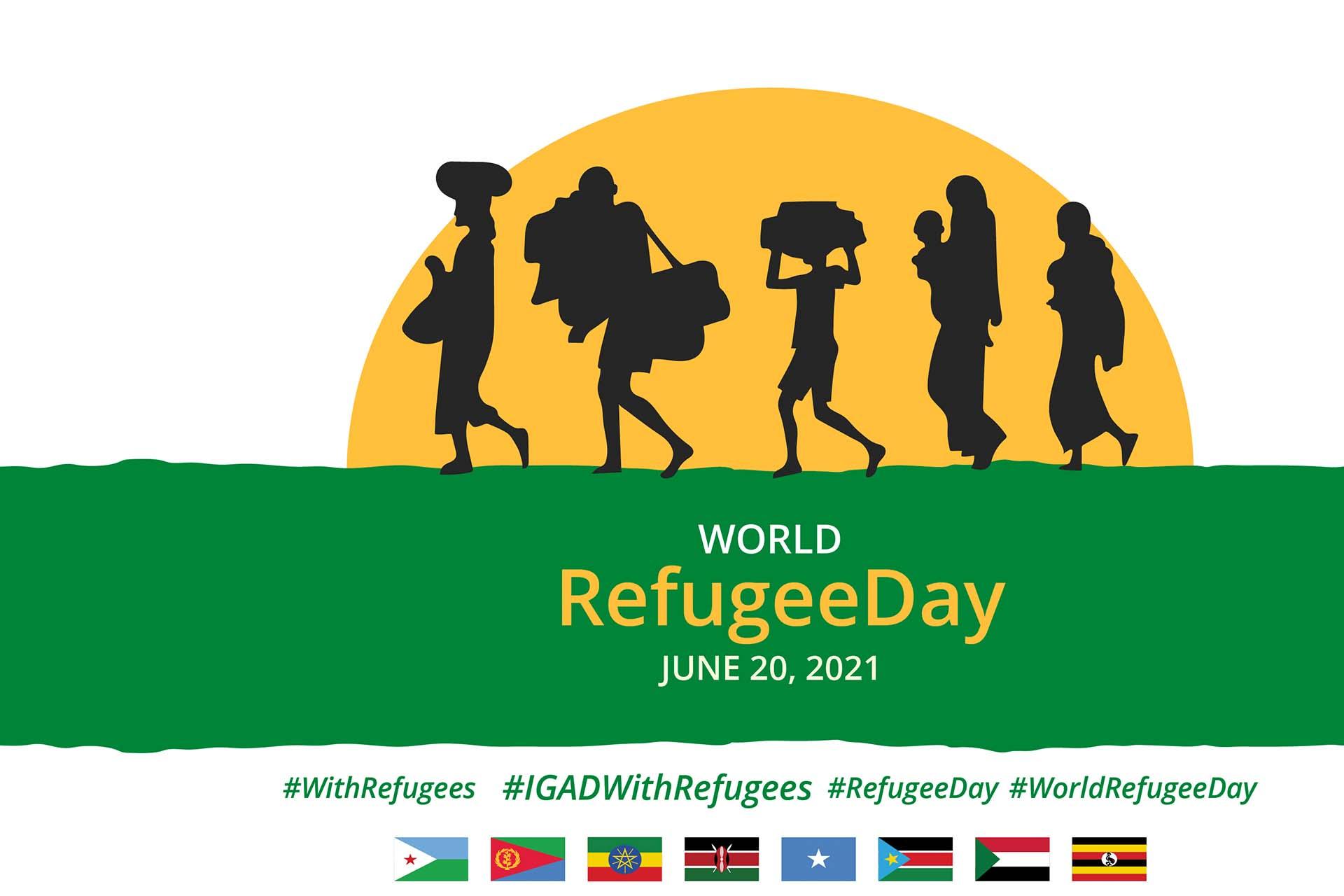June 20, 2021 (DJIBOUI, Djibouti): IGAD region has one of the highest concentration of displaced persons. As of April 30th 2021, IGAD region had over 14.3 million displaced persons comprising of over 4.3 million refugees and 9.8 million IDPs. Nearly 1 out of every 5 displaced persons globally, resides in the IGAD region. While majority of refugee caseloads in the IGAD region are protracted, new displacements continue to occur. Majority of the displaced population within the IGAD region emanate from countries within the region.
Despite declining trend of third-country resettlement figures and the mobility restrictions brought about by the Covid-19 pandemic, IGAD member states have maintained an open-door policy to refugees from within and beyond the IGAD region..
Since 2017, IGAD Member States have pursued a regional approach in finding durable solutions for displaced population and their host communities. The regional approach to durable solution emanated from the March 2017 Special Summit on durable solutions for Somali refugees and reintegration of returnees in Somalia. The Summit recognized the regional nature of impacts and solutions for both displacement and mixed migration, and called for a strengthened framework for regional integration and cooperation. The focus of the regional approach has since been expanded beyond the Somali situation to cover all displaced population within the IGAD territory.
The roll out and operationalisation of the Nairobi Plan of Action is considered to be a regional application of the Global Compact for Refugees and its accompanying Comprehensive Refugee Response Framework (CRRF). Currently, the operationalisation, follow-up and monitoring of the implementation of the Nairobi Action Plan is carried out through an Annual Inter-Ministerial Stocktaking Meeting and various thematic meetings. ”
Considerable progress has been made over the last two years across various thematic areas, mainly:
- Education: through the adoption of the Djibouti Declaration granting access to education for refugees, returnees and which was endorsed by the IGAD Ministers of Education in 2018 in Djibouti; and the development of national plans of action on refugee education;
- Livelihood: through the Kampala Declaration on Jobs, livelihoods and self-reliance for refugees, returnees and host-communities; and
- Health: through the integration of refuges, migrants’ cross border and mobile population in country health programming, particularly in the context of covid-19.
More recently, regional efforts have focused on the displacement situation in the Sudan and South Sudan, aimed at harnessing the peace dividends stemming from the implementation of the peace agreements reached for Sudan and South Sudan to find lasting solutions for 7 million displaced persons in and from the two countries.

